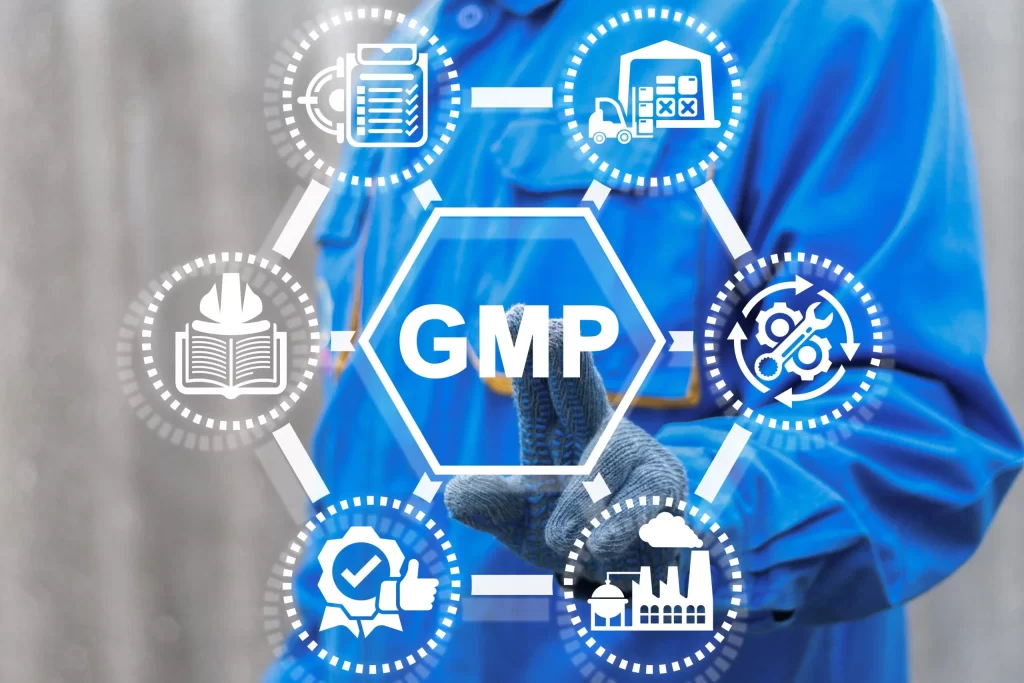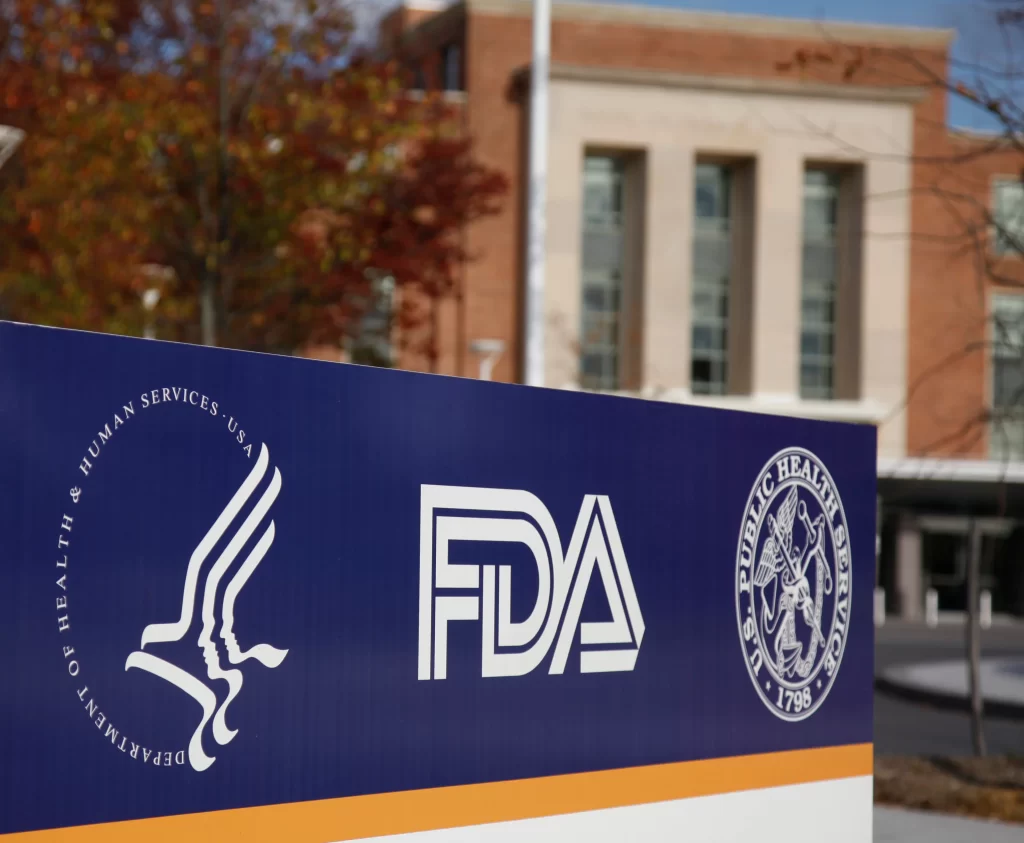Liquid supplement manufacturer have experienced rapid growth, driven by consumer demand for convenient and bioavailable nutrition. However, producing these supplements safely and effectively requires strict adherence to Good Manufacturing Practices (GMP) and FDA compliance. These standards ensure product quality, safety, and consistency, protecting consumers and manufacturers.
This guide explores how GMP and FDA regulations shape liquid supplement manufacturing and why they are non-negotiable for reputable brands.
What is GMP in Liquid Supplement Manufacturers’ terms?
To know “How to Evaluate the Quality Standards of Liquid Supplement Manufacturers,” GMP is a system of guidelines that standardizes production processes to ensure products meet quality, safety, and efficacy standards. Every step, from raw material sourcing to bottling, is tightly controlled for liquid supplements to prevent contamination, errors, or inconsistencies.
Key Elements of GMP:

Before you are going to check liquid supplement production capabilities, look for
- Product: Specifications for identity, purity, strength, and composition must be established and verified through testing.
- People: Staff must be trained to follow protocols and maintain hygiene.
- Premises: Facilities must be clean, organized, and designed to prevent cross-contamination.
- Processes: Documented procedures ensure consistency across batches.
- Procedures: Regular audits and quality checks validate compliance.
The 10 Principles of GMP
To ensure compliance with GMP standards, turnkey supplement manufacturing must adhere to the following principles:
- Create Standard Operating Procedures (SOPs): Detailed, written procedures are essential for each process that could affect the quality of the final product. These SOPs help streamline processes and ensure compliance with the desired quality standards.
- Follow SOPs: Creating SOPs isn’t enough; following these SOPs is crucial. Deviations from documented procedures can lead to quality issues, emphasizing the need for strict compliance.
- Validate SOPs: Once SOPs are followed, it’s essential to validate their effectiveness. This involves creating evidence that the processes maintain the expected level of compliance at all stages.
- Document Everything: Documentation is key to ensuring traceability and accountability. Detailed records of processes, changes, and operations must be kept.
- Monitor Facilities and Equipment: Liquid vitamin manufacturers must regularly maintain and monitor their facilities and equipment to avoid contamination and ensure products are produced under the right conditions.
- Employ Competent and Qualified Personnel: A well-trained and qualified workforce is fundamental. Continuous training and assessment ensure employees remain competent in their respective roles.
- Protect Products Against Contamination: Stringent cleanliness and hygiene practices are essential to prevent product contamination and ensure consumer safety.
- Control Product-Related Components and Processes: Managing all aspects of production, from raw materials to finished products, helps prevent errors and ensure quality.
- Ensure Quality in Operations, Manufacturing, Logistics, and Distribution: Quality control should be embedded in every phase of the production and distribution process to ensure the final product meets the required standards.
- Perform Periodic Audits with Certified Auditors: Regular audits should be conducted to ensure that GMP guidelines are followed. These audits can identify improvement areas and ensure corrective actions are implemented.
Why FDA Compliance Matters for Liquid Supplements

For Private Label Supplement Manufacturers: What You Need to Know is that the primary point of the FDA regulates dietary supplements under the Dietary Supplement Health and Education Act (DSHEA). While the FDA doesn’t pre-approve supplements, it enforces the following:
- Labeling Accuracy: Products must include a Supplement Facts panel with ingredient amounts and health claims that don’t imply disease treatment.
- Post-Market Surveillance: Manufacturers must report serious adverse events within 15 days.
- Inspections: The FDA conducts facility audits to verify GMP compliance and can issue warnings or recalls for violations.
Critical FDA Testing Requirements:
- Component Testing: Verify the identity of dietary ingredients and test for contaminants.
- In-Process Checks: Monitor production stages to detect deviations.
- Finished Product Testing: Ensure each batch meets purity, strength, and composition specifications.
Once you know all the critical FDA and GMP testing and choose a manufacturer, you must grasp the concept of Cost vs. Quality: Finding the Right Balance in Supplement Manufacturing to land the right deal.
The Importance of Choosing a GMP-Certified Liquid Supplement Manufacturer
If you’re looking for a reliable liquid supplement manufacturer in the USA, choosing one with GMP certification ensures that:
- Your supplements meet the highest quality standards.
- Compliance with FDA regulations is a priority.
- Transparency and accountability are upheld in every production stage.
What to Look for in a Turnkey Supplement Manufacturer
A turnkey supplement manufacturing partner should offer the following:
- Full-Service Production: From formulation to bottling and labeling.
- Compliance with Industry Standards: Adherence to both GMP and FDA guidelines.
- Custom Formulation Capabilities: Ability to create unique blends based on client needs.
- Scalability: Capacity to produce small batches and scale up as demand grows.
- Quality Assurance Testing: In-house lab testing and third-party verification.
Choosing a Compliant Liquid Supplement Manufacturer
When selecting a liquid supplement manufacturer in the USA, prioritize the following:
Here’s an expanded version of the section on GMP certification and other key factors to consider when selecting a liquid supplement manufacturer:
Choosing a Compliant Liquid Supplement Manufacturer
When selecting a partner, prioritize the following essential factors to ensure your products meet the highest standards of quality and safety:
GMP Certification: Ensures Adherence to Quality Protocols
GMP certification is a critical indicator of a manufacturer’s commitment to quality. It ensures that products are produced and controlled consistently according to established quality criteria, minimizing risks of contamination and errors. GMP covers all aspects of production, from raw materials to finished products, and includes detailed written procedures for each process that could affect product quality.
FDA Registration: Mandatory for U.S. Market Access
FDA registration is mandatory for manufacturers operating in the U.S. This registration is essential for ensuring compliance with federal regulations and gaining access to the U.S. market. It involves registering facilities with the FDA and adhering to all applicable laws, including those related to GMP.
Testing Capabilities: In-House Labs for Ingredient and Finished Product Analysis
A reliable manufacturer should have in-house labs to analyze ingredients and finished products. This ensures that every batch meets purity, strength, and composition specifications, ensuring product quality and safety. Third-party verification can validate these tests.
Transparency: Willingness to Share Audit Reports or CoAs
Transparency is key in building trust with manufacturers. Look for partners willing to share audit reports or Certificates of Analysis (CoAs). This openness demonstrates their commitment to quality and accountability, allowing you to verify their compliance with GMP standards.
Scalability: Flexibility to Handle Small or Large Batches
Scalability is crucial for meeting changing demand. A manufacturer should be able to produce small batches for initial product launches and scale up production as demand grows. This flexibility ensures that your products are always available without compromising on quality.
Real-World Examples of GMP Violations
Lax GMP practices have led to recalls of supplements containing undeclared allergens or harmful additives. For instance, a manufacturer might fail to properly test for contaminants, resulting in products that pose serious health risks to consumers. Ensuring strict adherence to GMP guidelines is crucial to avoid such scenarios.
The Future of Compliance in Liquid Supplements
As consumer demand grows, so does regulatory scrutiny. Innovations like blockchain for supply chain tracking and AI-driven quality control are emerging to streamline compliance. Meanwhile, manufacturers must stay ahead of GMP and FDA guidelines updates to avoid penalties and maintain trust.
Final Thoughts
GMP and FDA compliance are the backbone of safe, effective liquid supplement manufacturing. By partnering with certified, transparent manufacturers, brands can deliver products that meet rigorous standards while building consumer confidence. Cutting corners is never an option in an industry where quality is non-negotiable.
So, Nutra Best ensures focus. Supplements manufacturer on GMP and FDA compliance; Supplements Manufacturer Nutra Best ensures the safety and efficacy of its products, building trust with consumers and maintaining a competitive edge in the market.
Frequently Asked Questions (FAQs)
Are All Supplement Manufacturers Required to Be GMP Certified?
No, but GMP certification ensures higher quality and compliance with FDA standards.
What Happens If a Manufacturer Fails an FDA Inspection?
They may receive warning letters and fines or be required to halt production until issues are resolved.
How Can Consumers Verify If a Supplement Is FDA Approved?
The FDA does not approve supplements but regulates them. Consumers should look for GMP-certified manufacturers and third-party lab testing.
What’s the Difference Between GMP and CGMP?
GMP (Current Good Manufacturing Practices) refers to regulatory agencies’ most up-to-date compliance standards.
Why Is Liquid Supplement Manufacturing More Complex than Pill-based Supplements?
Liquid supplements require precise formulation, stability testing, and specialized packaging to prevent contamination and degradation.



